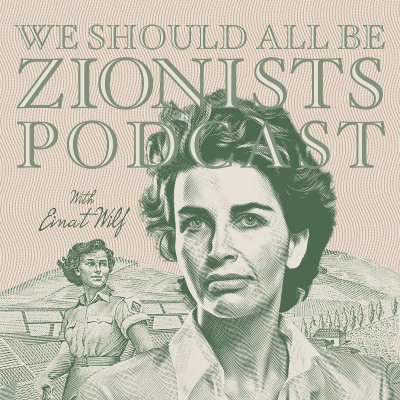
We Should All Be Zionists Podcast
Podcast von Einat Wilf
Nimm diesen Podcast mit

Mehr als 1 Million Hörer*innen
Du wirst Podimo lieben und damit bist du nicht allein
Mit 4,7 Sternen im App Store bewertet
Alle Folgen
34 FolgenIn this episode, the final episode of the We Should All Be Zionists Podcast, Einat leaves us with a note of optimism: changing attitudes in the Arab world. Though October 7th oddly galvanized much of the world against Israel, there are those, still, from even the most unlikely of places, who have stood by Israel's side and done even more for peace. We Should All Be Zionists means all, including Arabs and Muslims.
In 2018, Einat wrote an essay about the riots that were shaking the ground of the border between Israel and Gaza. Einat understood then that the unrest wasn't about just better living conditions -- they were an expression of the desire to "return" to Israel -- violently. Then, Blake Flayton joins for a conversation about Jewish/Palestinian appropriation in Yafo bookstores.
In this episode, Einat discusses her topic of expertise: the Palestinian "right of return," which, as we have covered many times, is not a "right" enshrined anywhere in international law, nor would it be, for many people, a return. What do Western states not understand about this concept? Plus: a new addition to The War of Return, post-October 7th, and a conversation with Blake Flayton on the failings of Prime Minister Netanyahu and proposals for Gaza's future.
In this episode, recorded at the end of December 2024, Einat examines the arguments of Peter Beinart, a Jewish columnist in a favor of a one, non-Jewish state solution to the Israeli-Palestinian conflict, and of resettling Palestinian "refugees" from the 1948 war inside of Israel. Then, Blake Flayton joins the conversation to discuss "Holocaust envy."
In this episode, in which two essays are read, Einat lays the myth to rest that Yitzhak Rabin's assassination derailed the peace process between the Israelis and Palestinians. Why is the tenure of Rabin so mythologized and glorified? And if Yigal Amir did not truly kill the peace process, then what did?























